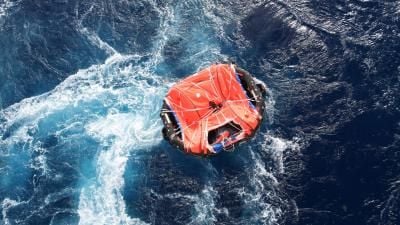Lydia has a professional and academic background spanning the museum, heritage and maritime sectors
Addressing climate challenges within search and rescue operations.
This page is approximately a 2 minute read

This project's duration was 2024 - 2025
£199,423
The International Maritime Rescue Federation (IMRF) is an international, non-governmental organisation that supports search and rescue (SAR) organisations with the development and improvement of maritime SAR capacity around the world.
Supported by funding from Lloyd’s Register Foundation, The IMRF's #FutureSAR initiative identifies the key challenges the global maritime search and rescue (SAR) industry will face as a result of climate change and proposes guidance and best practices that will aid rescue operations in the future. The initiative is the world’s first SAR industry-wide response to the effects of climate change on the maritime SAR sector as coastal communities, maritime activity and the infrastructure that they depend on are exposed to increasing risks.
#FutureSAR looks at how SAR services may be able to deal with climate change-related challenges, including new rescue scenarios such as storm surges, implementing new technologies such as alternative fuels, and protecting infrastructure such as lifeboat facilities. The initiative also considers some ways the global maritime SAR community can contribute to the wider shipping industry’s drive to decarbonise and achieve net zero.
IMRF have recently launched the first-ever Global Maritime Search and Rescue (SAR) Systems Review: a ground-breaking initiative to understand, evaluate, and strengthen SAR systems around the world. This strategic review assesses the current effectiveness of SAR capabilities at local, national, and international levels, and identifies emerging risks to deliver long-term, evidence-based recommendations that ensure SAR systems remain resilient in an increasingly complex maritime environment.
Jan Przydatek Director of Technologies, Lloyd’s Register Foundation.
“With the #FutureSAR project now moving into its second phase, the IMRF remains at the forefront of developing innovative solutions to safeguard lives at sea in an era of rapidly changing environmental conditions. We are proud to continue supporting this critical campaign which aligns strongly with our mission of securing appropriate technical, operational and performance responses to climate change that enhance safety of life and property at sea."
